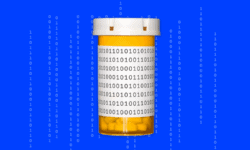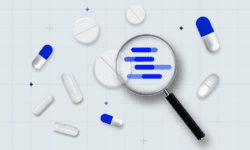The world of healthcare is rapidly changing—patient data, the connected experiences and applications of digital healthcare, and everything in between is transforming with the widespread adoption of generative AI (genAI). To dive deeper into how these advancements will shape future medical treatments, Ken Munie and Laura Westercamp of Accenture shared their outlooks for 2024 and beyond at the AlphaSense Advantage Summit.
Both Munie and Westercamp’s research focuses on answering one question: what do patients value? Together, they surveyed 800 digital natives who reflect proportional demographics. By speaking with a number of individuals whose health conditions range from a healthy condition to chronic, and rare, they’re developing a deeper understanding of the relationship patients have with digital health and data.
What they’ve discovered is that digital healthcare is quickly becoming central to the lives of consumers—a revelation that pharma and medtech leaders will need to prioritize in upcoming quarters. But what does this mean, exactly? Below, we share Munie and Westercamp’s research insights and how they pose as lucrative market opportunities ripe for investment and strategy.
Watch the full session on-demand: The Future of Healthcare: Patient Data, Connected Experiences, and Generative AI
The Evolving Market of Digital Healthcare
Digital healthcare is undeniably paving a concrete path within medicine. In 2021, healthcare startups raked in roughly $30 billion of funding, according to Rock Health. “Now, as we see some of the market frothiness [around digital healthcare] subsided, biopharma and medtech are really reevaluating their digital health strategy, and they’re thinking about what solutions they’re really going to focus on to provide real unique value,” says Westercamp.
What’s emerged from these conversations amongst executives around how to seize the opportunities within digital healthcare are three key elements defining the space:
Rapid Acceleration: Digital healthcare adoption has and continues to accelerate rapidly, as most patients today are regularly using variations of this technology. According to Munie and Westercamp’s research, 91% of respondents are using digital health tools to manage their health, which includes everything from consumer wearables (i.e., Apple watch, Fitbit, etc.) to health tracking apps (i.e., MyFitnessPal, etc.). Additionally, consumers are consistently monitoring the information these tools generate—about 96% of respondents check once per week, while two-thirds track once a day.
Disparities Between Information Sharing: “There’s a significant gap between people who share health data today and patients who are willing to share,” says Munie. Essentially, there’s an ever-increasing volume of patient data sourced from digital healthcare, and based on their research, roughly 79% of respondents would share their data if asked. Another roughly 71% of respondents are even willing or extremely willing to share their data.
Personal Benefit: The personal benefit of sharing data is a major motivator for consumers to disclose stats—an important aspect for companies to address. About 84% of respondents had a positive experience sharing data.
Related Reading: 8 Medical Device Trends and Outlook for 2024
How Healthcare Leaders Can Better Leverage Patient Data
Munie and Westercamp believe there are five actions that leaders should take to leverage these three key elements within their operations:
Implement Strategy: It’s important for pharma and medtech companies to be intentional and thoughtful about the data they capture. Digging deeper into understanding your data can lead to improving patient and provider outcomes through those insights, and ultimately, can lead to better strategy.
Making the Ask: When asking if patients are willing to share their data, it’s imperative to prioritize transparency and trust. For Munie and Westercamp, they believe patients are willing to share that data, but they need to understand the potential implications and ramifications of what that actually entails (i.e., privacy and HIPAA laws, use cases, etc.).
Person First, Patient Second: For pharma and medtech leadership, it’s important to go beyond research and really understand the customer experience when building a solution or tool. “We started from a place of surveying digital natives and understanding their willingness to share data. And I think it’s important to keep in mind that a person’s life is a lot more than just their diagnosis and their digital health tools. It’s also their social determinants of health, their treatments, their lifestyle choices, their family and caregivers, and how all of those digital tools fit into their lives,” says Westercamp.
Comprehensive Data Capture: Munie emphasizes ensuring that data is meaningful to identify actionable, personal health insights, as this is what motivates patients to not only share their own data, but learn from others’. Ask, how is your data going to impact them and how will it help them live healthier lives?
Accelerating Data Impact: Utilizing technologies like gen AI to unlock insights about the population of patients, about the providers, and how do you make sure those different models are complete and representative?
Related Reading: Top Medtech Trends and Outlook for 2024
How Will GenAI Shape the Patient Data Market?
Today, there’s an increasing amount of data related to patient care readily available to healthcare company leaders—data that patients are more willing to share than in the past. And so the question becomes, how can companies extract the most value out of that data to improve experiences and outcomes for patients? The answer is genAI and the large language models they’re built upon.
From summarizing text to analyzing images within medical records, genAI tools are leveraged within healthcare to do a series of tasks in a much more efficient manner than previously possible, ultimately unlocking a new potential to improve patient care. Based on Accenture’s research, bioengineers and biomedical engineers would benefit from genAI augmentation, while technicians, biological technicians, or data managers might find value in automation.
In fact, about 40% of working hours in life sciences organizations can be impacted through this mix of automation and augmentation.
Risks of GenAI
These new iterations of genAI carry potential risks ranging from IP infringement to model hallucinations (i.e., when a model claims to produce accurate responses that are, in reality, inaccurate). Within healthcare, genAI misinformation at scale is a possibility depending upon how a model is trained. For example, if a model was trained off of social media, the responses generated would consist of “non-standard” care information.
However, there are ways to overcome this discrepancy between false, inaccurate information and reliable, accurate insights. GenAI engineers are finding ways to introduce transparency by training a model on clean data, or data that’s free from IP conflicts, and also linking specific credible sources that verify a response’s claim. The most proactive life science firms even have governance and guardrails around what work genAI is allowed to conduct and to what extent.
While the potential for genAI to automate is very high, the best use cases involve some human involvement. The bottom line: genAI is not replacing human workers, but rather improving the efficiency and effectiveness of workflows.
“What really separates out the more advanced or more mature companies is how they focus on responsible AI or what we would call responsible AI from the end to end, meaning to embed it in the design and the development of their genAI use cases, as well as how they deploy and monitor these models,” says Westercamp.
Reliable GenAI Tools for Healthcare Professionals
In a volatile market that’s producing new developments around genAI every day, it’s challenging to decipher what technology, product, or insight could revolutionize the healthcare industry next. Cutting through the noise to find insights is nearly impossible in the age of information overload. You need a tool that does all of the heavy lifting, so you can focus on leveraging information rather than searching for it.
AlphaSense is a leading provider of market intelligence, including 10,000+ high-quality content sources from more than 1,500 leading research providers—all in a single platform. Analysts, researchers, and decision-makers in the medtech sector can access exclusive research reports only found elsewhere in disparate locations and often behind expensive paywalls. With AlphaSense, companies can conduct comprehensive research that gives them a competitive edge with smarter, more confident decision-making.
Stay ahead of the rapidly evolving digital health landscape and get your competitive edge with AlphaSense.




